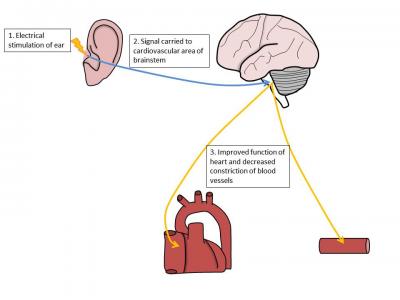The way we laugh when tickled is ‘uniquely different’ from other laughter
Machines and humans can both identify when laughter is caused by tickling
Your support helps us to tell the story
From reproductive rights to climate change to Big Tech, The Independent is on the ground when the story is developing. Whether it's investigating the financials of Elon Musk's pro-Trump PAC or producing our latest documentary, 'The A Word', which shines a light on the American women fighting for reproductive rights, we know how important it is to parse out the facts from the messaging.
At such a critical moment in US history, we need reporters on the ground. Your donation allows us to keep sending journalists to speak to both sides of the story.
The Independent is trusted by Americans across the entire political spectrum. And unlike many other quality news outlets, we choose not to lock Americans out of our reporting and analysis with paywalls. We believe quality journalism should be available to everyone, paid for by those who can afford it.
Your support makes all the difference.The way people laugh when tickled is “uniquely different” from other laughter such as when hearing a joke, according to a new study.
Researchers at the University of Amsterdam say both machines and humans can learn to tell the difference between different types of laughter and identify when it’s caused by tickling.
Laughter is a complex behaviour, with similar expressions seen in many mammals including chimpanzees, squirrel monkeys and dogs.
Even deaf people who haven’t heard their own voice, or of other people, produce laughter, suggesting that genetic mechanisms play a role.
But laughter comes in different types, such as from play or when watching something funny, and examining the distinctions may prove crucial to understanding their unique functions, scientists say.

Tickling is a form of play behaviour seen even in some macaques and chimpanzees and it serves as the closest evolutionary link between play laughter in humans and other mammals.
The new study, published on Wednesday in the journal Biology Letters, assessed sound components from around 900 laughter clips, which included real-life situations related to tickling, joking, comedic performances, playful pranks, and seeing someone’s misfortune.
Scientists used these laughter tracks to train and test a machine-learning algorithm.
Then, in a second experiment, they made over 200 participants listen to 30 of the 900 clips and identify laughter induced by tickling.
Participants correctly identified this laughter over 60 per cent of the time, while a second group of listeners identified such laughter as sounding less controlled.
Researchers found both the machine learning model and human test subjects were particularly adept at identifying tickling laughter.
“Listeners can accurately discern tickling-induced laughter without access to any visual cues,” scientists say. “Together, our results reveal a unique acoustic and perceptual profile of laughter induced by tickling.”
The way we laugh when tickled may be a response conserved by evolution, distinguishing it clearly from laughter caused by other triggers, scientists conclude.
For instance, there is heightened arousal observed in tickling-induced laughter.
The findings, according to researchers, also demonstrate the potential of machine learning in uncovering patterns within complex human actions to provide a window into the evolutionary significance of different behaviours.
“Technological advancements in recent years allow us to study behaviours in the contexts in which they naturally occur, with machine learning illuminating differentiations that were previously unknown,” they say.
Join our commenting forum
Join thought-provoking conversations, follow other Independent readers and see their replies
0Comments